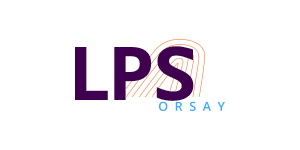Charlotte RIVIERE : Probing cancer cell response upon mechanical or chemical stimuli
Titre : Probing cancer cell response upon mechanical or chemical stimuli
Résumé : There are number of evidences indicating that both tumour micro-environment and mechanics are playing an important role in the malignant transformation of cells and resistance to treatment. We try to take into account these important issues (micro-environment and mechanics) by developing original techniques enabling to precisely control cell micro-environment, including the applied mechanical stress.
In particular, we have developed agarose-based microsystems that enable a precise control of cell micro-environment in terms of mechanics (stiffness, stress) and transport of molecules (through a porous matrix) (Figure 1, [1-5]). Combined with multipositions time-lapse microscropy and image analysis, we are able to decipher cell response in-situ in such confined situation, at the single cell level and over space and time.
In this seminar, I will first present our agarose-based microsystems, before describing results obtained for 2D or 3D confinement, as well as how these systems can be used to assess transport and therapeutic efficacy of novel nano-therapeutics in a more physiological environment than the classical 2D in vitro assay used. As such, it could be a valuable tool to assess the interplay between mechanics and biochemical signaling in the progression of cancer.
Biographie : Dr Charlotte Rivière, has education in both material science engineering and biomedical engineering. After receiving a phD degree in biophysics in 2005, she spent one-year as a R&D engineer in a start-up company (Nano-H) developing hybrids nanoparticles for biomedical applications. She then got a position of associate professor in 2006 in the biophysics group of the Institute of Light and Matter (ILM) and is full professor since 2025. From her present research activities, she is applying her expertise to cancer research and is actively involved in collaborative projects between physics, microtechnology, and cancer. She has been awarded by the CNRS bronze medal in 2021 and has been a junior member of the IUF (Institut Universitaire de France) from 2019 to 2024.
